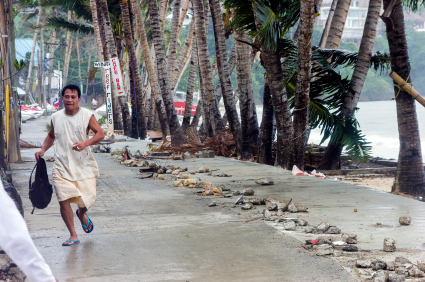USCIS Memo on Visa Waiver Program and Adjustment of Status:
On November 14, 2013, U.S. Citizenship and Immigration Services (USCIS) issued a policy memorandum clarifying the eligibility of individuals who last entered the U.S. under the Visa Waiver Program (VWP) to adjust status to permanent resident (green card).

The VWP allows qualifying foreign nationals from select countries to enter the U.S. for up to 90 days for business or for pleasure without first obtaining a nonimmigrant visa. Prior to traveling to the U.S. under the VWP, individuals must have a valid Electronic System for Travel Authorization (ESTA) approval. Currently, there are 37 countries designated for the VWP:
Andorra, Australia, Austria, Belgium, Brunei, Czech Republic, Denmark, Estonia, Finland, France, Germany, Greece, Hungary, Iceland, Ireland, Italy, Japan, Latvia, Liechtenstein, Lithuania, Luxembourg, Malta, Monaco, the Netherlands, New Zealand, Norway, Portugal, San Marino, Singapore, Slovakia, Slovenia, South Korea, Spain, Sweden, Switzerland, Taiwan (included among “countries” under U.S. law), and United Kingdom.
The VWP allows certain visitor activities similar to those permitted for B-1 visas (visitors for business) and B-2 visas (visitors for pleasure). For example, VWP visitors may perform certain business activities such as consulting with business associates; attending educational, professional, or business conventions or conferences; attending short-term training sessions; and negotiating contracts. Tourist/Visit activities may include vacationing; visiting with family or friends; receiving medical treatment; participating as amateurs (unpaid) in musical, sports, or other similar events or contests; and enrolling in a short recreational course of study (not for credit toward a degree), such as a two-day cooking class while on vacation. On the other hand, VWP entrants are precluded from certain activities such as studying for credit, performing productive employment, and working as foreign press, radio, film, journalists, or other information media. Further, unlike B-1 and B-2 visitors, individuals admitted under the VWP cannot extend their stays. Under limited circumstances, USCIS may grant a 30-day period of "Satisfactory Departure"; otherwise, an individual must depart the U.S. before the VWP admission period expires. Other restrictions apply to the VWP, such as waiving the right to contest any action for removal (deportation), other than on the basis of an application for asylum. Pursuant to federal regulations, individuals who enter the U.S. under the VWP shall be removed from the country without referral to immigration court.
The recent USCIS memo clarifies adjustment of status eligibility for individuals who entered under the VWP. It has been understood that the law prevents individuals who entered under the VWP from adjusting status to permanent resident. There is, however, as the memo highlights, an exception for immediate relatives. (“Immediate relatives” are defined under immigration law as spouses of U.S. citizens, children (unmarried and under 21 years of age) of U.S. citizens, and parents of U.S. citizens 21 years of age or older.) The exception for immediate relatives allows adjustment of status even after the authorized VWP period has passed.
The USCIS memo also sheds light on the interplay between adjustment of status and removal proceedings. Although a VWP overstay may not contest a removal action, even on the basis of a pending application for permanent resident status, nothing precludes the U.S. Department of Homeland Security from exercising discretion to (1) decline to pursue removing that individual and (2) grant an eligible applicant permanent resident status.
While the USCIS memo clarifies adjustment of status eligibility requirements for immediate relatives who last entered on the VWP, it also makes clear there are strict procedural and jurisdictional rules that apply to those who are or may be subject to removal. An immigration attorney experienced in removal proceedings can help an individual understand and manage those rules.
*If you have questions about the Visa Waiver Program, you should contact an experienced immigration attorney.
* * *
Temporary Protected Status Sought for the Philippines:
In light of the Typhoon Haiyan disaster, efforts began last week to request that the U.S. Department of Homeland of Security (DHS) designate the Philippines for Temporary Protected Status (TPS).

The DHS Secretary (for the moment, Acting Secretary Rand Beers) has the authority to designate a foreign country for TPS because of conditions that temporarily prevent the country’s nationals from returning safely, or in certain circumstances, where the country is unable to handle the return of its nationals adequately. Once a country is designated for TPS, U.S. Citizenship and Immigration Services (USCIS) may grant TPS to its eligible nationals who are in the U.S. Some countries designated for TPS include Syria, El Salvador, Haiti, and Honduras.
The Secretary may designate a country for TPS based on any of following temporary country conditions:
- Ongoing armed conflict (such as civil war, e.g., Syria);
- An environmental disaster (such as hurricane or earthquake, e.g., Haiti), or an epidemic; and
- Other extraordinary and temporary conditions.
During a period in which a country is designated for TPS, individuals granted TPS, or who are found prima facie eligible for TPS:
- Are not removable (deportable) from the U.S.;
- Can obtain an employment authorization document (EAD); and
- May be granted travel authorization.
As the name suggests, TPS is a temporary benefit that does not on its own lead to lawful permanent resident (LPR) status or give any other immigration status. However, TPS does not prevent an individual from:
- Applying for nonimmigrant status;
- Applying for adjustment of status to LPR based on an immigrant petition; or
- Applying for any other immigration benefit or protection for which she or he may be eligible.
Last week, Senator Charles Schumer (D-NY), New York Cardinal Timothy Dolan, and the American Immigration Lawyers Association (AILA) called upon DHS to extend TPS to the Philippines. According to recent reports, the death toll is at 4,200. The Philippine government disputes this figure and has reported 3,637 deaths as of this Saturday, up from 2,360. According to the Philippine disaster council, 1,186 are still missing.
The Philippine government says 9.8 million have been affected in 44 provinces, 539 municipalities, and 56 cities. Of those affected, 4.9 million are children; 1.5 million are children under the age of five who are at risk of Global Acute Malnutrition (GAM). According to U.N. estimates, 2.5 million people are in need of food assistance.
*If you have questions about Temporary Protected Status or other immigration benefits, you should contact an experienced immigration attorney.
